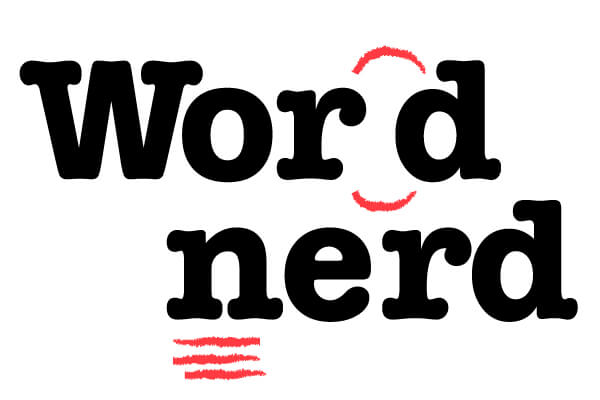The Watergate scandal produced a number of far-reaching effects. It brought down a president. It created a new era of disillusionment with politics. And, more important for my purposes, it spawned one of the most flexible, enduring suffixes in modern history. Since the ’70s, we’ve had countless -gate iterations, including Nipplegate (Janet Jackson, Super Bowl XXXVIII, Janet Jackson’s nipple), Donutgate (2015, singer Ariana Grande licking a donut and saying “I hate America”), and, in Canada, the 2011 election-fraud scandal known as Robogate. (It’s unfortunate that the Democratic National Committee didn’t instead set up its headquarters at Washington’s historic Shoreham Hotel—the “Roboham scandal” has a certain ring to it.)
Just two months ago, Canada was once again the site of a -gate when Edmonton mayor Don Iveson waded into the shark-infested waters of punctuation. In late March, city council’s executive committee voted in favour of a motion to name a neighbourhood “Rivers Edge.” There was, however, only one river with an edge in that location. It was clear—to the mayor, at least—that an apostrophe was needed. Iveson was aghast: “I will cringe forever when I go past that sign,” he said. After making his objections clear, the committee passed yet another motion, amending the name to “River’s Edge.” “Apostrophe gate […] has come to an end,” declared the CBC.
And this wasn’t even the world’s first apostrophe-gate. In 2013, a contestant on The Apprentice UK dropped the mark from a proposed product name, and “Shameless Apprentice star Luisa Zissman: Apostrophe-gate was fabulous for me” was the resulting headline in the Daily Express. One year earlier, British book retailer Waterstones incurred the wrath of pedants everywhere (but especially on Twitter) when it announced it would no longer be Waterstone’s—“Waterstone’s apostrophe-gate: Twitter responds with fury,” read one tweet, reproducing part of a Metro UK headline and illustrating one of the problems the company had faced (Waterstone’s’s?).
Appending a -gate in these cases isn’t simply a matter of creating comedy by juxtaposing a big thing (the Watergate scandal) with a seemingly inconsequential thing (the apostrophe). There are those who feel very, very strongly—I cannot stress enough just how strongly—about this tiny sliver of a shape.
In her surprise 2003 bestseller, Eats, Shoots & Leaves, Lynne Truss asserts that those who mix up it’s and its deserve to be “struck by lightning, hacked up on the spot and buried in an unmarked grave.” When, in 2013, the local council of Mid Devon, UK, moved to do away with the apostrophe on street signs, it was accused of “murdering” it. “It is appalling, disgusting and pointless—they have no regard for the English language,” said concerned citizen John Richards, who also happens to be the founder and chairman of the Apostrophe Protection Society.
That’s right: there is an actual society for the protection of apostrophes. And, because balance must be maintained in the universe, there is also a website called killtheapostrophe.com, which wants to murder the very thing Truss wants to murder people for getting wrong. To take a position on the apostrophe is to trigger a figurative bloodbath.
Opportunities to argue in favour of its demise/argue in favour of the demise of those who argue in favour of its demise will only increase as coding and texting make it less pervasive and more frustrating to accommodate. I confidently expect that every few years, a corporation will remove the apostrophe from its name or an edge will not have the correct relationship with the appropriate number of rivers, sparking a slew of think pieces claiming that the Decline and Fall of Civilization is imminent, or, conversely, that the Dawn of Enlightened English is finally upon us. Grammarians will be trotted out to bemoan the ignorance of the modern age, and linguists will be trotted out to proclaim that the apostrophe is useless anyway and communication can happen just fine without it, thank you very much.
I personally have no overpowering urge to eviscerate people who mistake its for it’s (I save my fits of violence for those who use impact as a verb). The apostrophe can be a bit tricky, after all. It signals the possessive case (River’s Edge), replaces missing letters (City gov’t sparks apostrophe-gate), and very occasionally helps form the plural (Grammar lovers mind their p’s and q’s). The possessive of plural nouns is formed by adding just the apostrophe, except when it’s not, and certain style guides advocate their own approaches (avoid the ’s when adding it to a proper name would create an eez sound). But does the mild inconvenience of the apostrophe justify dismembering it and burying it in an unmarked grave?
I say no, and not simply because I fear change and do not want to learn a whole new set of rules. Apostrophes, however maddening they can be, perform a useful service. Consider the following:
Edmonton’s river’s names (refers to one Edmonton and its river)
Edmonton’s rivers’ names (one Edmonton and its many rivers)
Edmontons’ river’s names (more than one Edmonton—perhaps the ones in Alberta and Kentucky—and their shared river)
Edmontons’ rivers’ names (more than one Edmonton and their many rivers)
Sure, such linguistic situations are relatively rare. And, sure, even without the aid of a nifty little mark, a reader would likely at some point figure out how many Edmontons and Edmontonian rivers were being discussed. But I’m generally in favour of helping readers avoid even momentary confusion, so while I’m not quite as motivated as the residents of Cambridge, UK, who in 2014 took markers to newly apostrophe-less street signs in an act of pedantic defiance, I will do what I can—short of vandalism or homicide—to prevent the mark from being erased from English.


